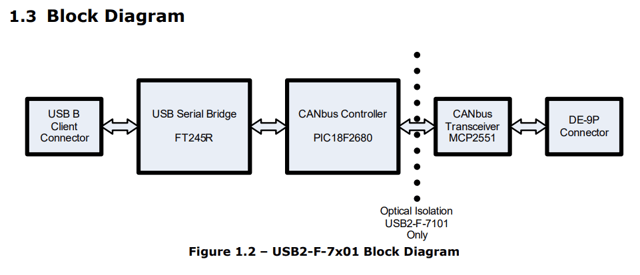I have a motor whose driver board communicates via the CAN protocol. I need to programmatically command the driver board from my laptop computer using CANopen.
I am looking into buying a USB to CAN adapter. I came across this article: USB-to-CAN Adapters connect CAN bus devices to PC., which suggests two potential adapters:
USB2-F-7001USB2-F-7101(adds optical isolation between CANbus transceiver and CANbus controller, costs $100 more).
(Source)
I am totally new to CAN. I am wondering:
- Is this optical isolation necessary?
- Am I really putting my computer at risk by not optically isolating it from the CAN bus?
Related Questions
Does CANbus need to be isolated?
Suggests it may not be a big deal, if the motor is well grounded. However, it's not specifically for the USB-to-CAN adapter, so I am asking it explicitly.

